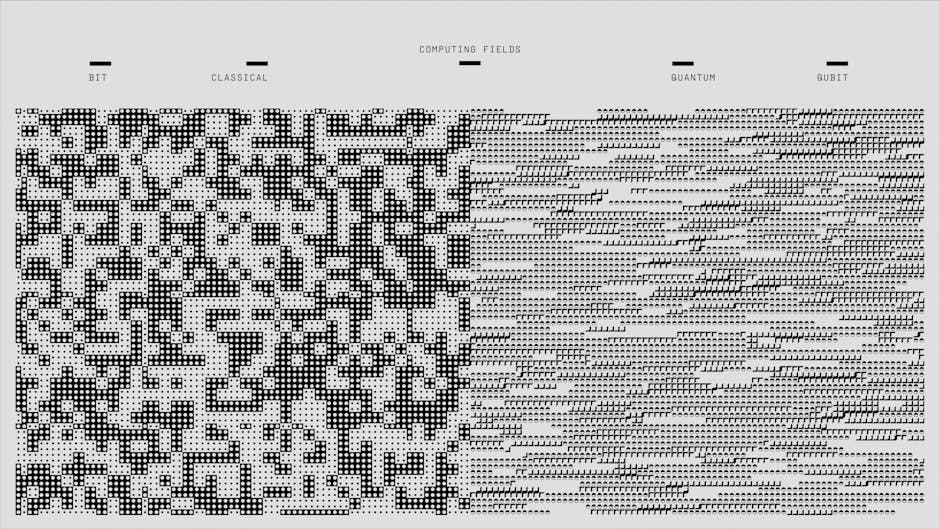Breakthroughs in Quantum Computing Explained

Quantum computing represents a significant leap in technology, promising to revolutionize various fields by solving problems that are currently intractable for classical computers. This new paradigm leverages the principles of quantum mechanics to perform computations in ways fundamentally different from traditional computing. Recent breakthroughs have brought us closer to realizing the potential of quantum computing, making it an exciting and rapidly evolving field.
Understanding Quantum Mechanics
At the heart of quantum computing lies quantum mechanics, the branch of physics that studies subatomic particles and their behaviors. Unlike classical bits, which can be either 0 or 1, quantum bits or qubits can exist in multiple states simultaneously due to a property called superposition. This allows quantum computers to process a vast number of possibilities at once.
Another essential concept is entanglement, where pairs or groups of qubits become interlinked such that the state of one qubit directly influences the state of another, regardless of distance. This phenomenon enables faster information processing and transmission.
The combination of superposition and entanglement gives quantum computers their extraordinary potential, allowing them to solve complex problems more efficiently than their classical counterparts.
Recent Breakthroughs
Several milestones have been achieved recently that bring us closer to practical quantum computing. Google's Quantum AI team announced in 2019 that they had achieved "quantum supremacy," meaning their quantum computer performed a task that would be practically impossible for a classical computer (Google). Although debated by some experts, this was a significant step forward.
IBM has also made substantial progress with its quantum computers, offering cloud-based access to their quantum processors through IBM Quantum Experience (IBM). This platform allows researchers and developers worldwide to experiment with quantum algorithms and contribute to the field's advancement.
In 2021, Chinese researchers demonstrated a quantum computer named Jiuzhang 2.0 that can perform tasks faster than any known classical supercomputer (Nature). These developments illustrate the global effort to push the boundaries of what is possible with quantum technology.
Applications and Potential Impact
Quantum computing holds promise across various sectors, from pharmaceuticals to finance. In drug discovery, for instance, quantum computers could simulate molecular structures and interactions at an unprecedented scale and speed, potentially leading to new treatments and cures.
- Chemistry: Simulating complex chemical reactions.
- Cryptography: Breaking traditional encryption methods while also creating more secure protocols.
- Optimization: Solving large-scale optimization problems in logistics and supply chains.
Financial institutions are exploring how quantum algorithms can optimize trading strategies and risk management. The ability to process large datasets quickly could transform data analysis and artificial intelligence applications, leading to smarter decision-making processes.
Challenges and Future Directions
Despite its potential, several challenges must be overcome before quantum computing can become mainstream. One major issue is qubit stability; qubits are highly susceptible to environmental noise, which can lead to errors in computation. Researchers are working on error correction techniques to address this problem.
The scalability of quantum systems is another hurdle. Building a quantum computer with millions of stable qubits remains a daunting task due to current technological limitations. Advances in materials science and engineering are crucial for overcoming these barriers.
Moreover, developing efficient quantum algorithms tailored to solve specific real-world problems is an ongoing area of research. Collaboration between academia, industry, and government will be vital in driving innovation forward.
The Road Ahead
| Year | Milestone |
|---|---|
| 2019 | Google claims quantum supremacy. |
| 2020 | IBM expands cloud-based quantum computing access. |
| 2021 | Chinese researchers demonstrate Jiuzhang 2.0's capabilities. |
| Future | Focus on error correction, scalability, and practical applications. |
The field of quantum computing is poised for continued growth as researchers tackle existing challenges and explore new possibilities. Collaboration across disciplines will be essential in translating theoretical advances into practical applications. As technology matures, we can expect significant breakthroughs that will reshape industries and redefine our understanding of computation.